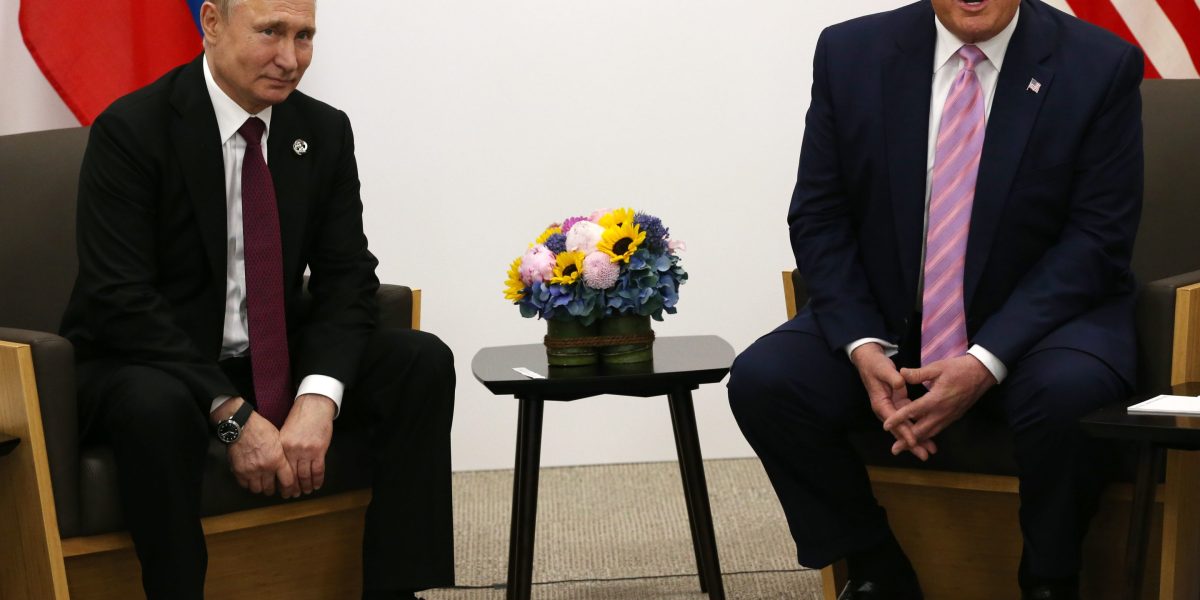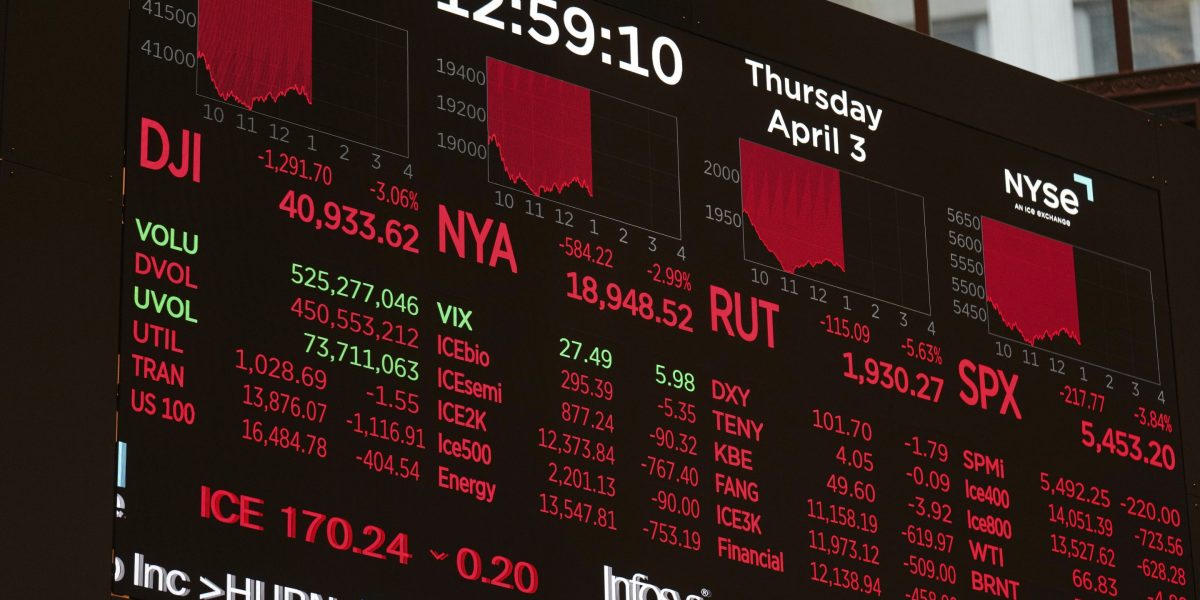Asian shares slid further Friday after U.S. President Donald Trump’s tariffs sent shudders through Wall Street at a level of shock unseen since the COVID-19 pandemic pummeled world markets in 2020.
Everything from crude oil to Big Tech stocks to the value of the U.S. dollar against other currencies has fallen. Even gold, a traditional safe haven that recently hit record highs, pulled lower after Trump announced his “Liberation Day” set of tariffs,’ which economists say carries the risk of a potentially toxic mix of weakening economic growth and higher inflation.
Markets in Shanghai, Taiwan, Hong Kong and Indonesia were closed for holidays, limiting the scope of Friday’s sell-offs in Asia.
Tokyo’s Nikkei 225 lost 4.3% to 33,263.58, while South Korea’s Kospi sank 1.8% to 2,441.86.
The two U.S. allies said they were focused on negotiating lower tariffs with Trump’s administration.
Australia’s S&P/ASX 200 dropped 2.2% to 7,684.30.
In other trading early Friday, the U.S. dollar fell to 145.39 Japanese yen from 146.06. The yen is often used as a refuge in uncertain times, while Trump’s policies are meant in part to weaken the dollar to make goods made in the U.S. more price competitive overseas. The euro gained to $1.1095 from $1.1055.
Trump announced a minimum tariff of 10% on global imports, with the tax rate running much higher on products from certain countries like China and those from the European Union. Smaller, poorer countries in Asia were slapped with tariffs as high as 49%.
It’s “plausible” the tariffs altogether, which would rival levels unseen in more than a century, could knock down U.S. economic growth by 2 percentage points this year and raise inflation close to 5%, according to UBS.
That’s such a big hit it “makes one’s rational mind regard the possibility of them sticking as low,” according to Bhanu Baweja and other strategists at UBS.
Trump has previously said tariffs could cause “a little disturbance” in the economy and markets. On Thursday he downplayed the impact.
“The markets are going to boom, the stock is going to boom and the country is going to boom,” Trump said as he left the White House to fly to Florida.
The S&P 500 sank 4.8% to 5,396.52 and the Dow Jones Industrial Average dropped 4% to 40,545.93. The Nasdaq composite tumbled 6% to 16,550.61.
Some of the worst hits walloped smaller U.S. companies, and the Russell 2000 index of smaller stocks dropped 6.6% to pull more than 20% below its record.
Four of every five that make up the S&P 500 declined.
Best Buy fell 17.8% because the electronics that it sells are made all over the world. United Airlines lost 15.6% because customers worried about the global economy may not fly as much for business or feel comfortable enough to take vacations. Target tumbled 10.9% amid worries that its customers, already squeezed by still-high inflation, may be under even more stress.
Investors knew Trump was going to announce sweeping new tariffs, and fears surrounding it had already pulled Wall Street’s main measure of health, the S&P 500 index, 10% below its all-time high.
Some analysts and investors believed Trump might use tariffs simply as a tool for negotiations, rather than as a long-term policy. But he indicated Wednesday that he sees them as a way to bring factory jobs back to the United States, which could take years.
The Federal Reserve could cut interest rates to support the economy, but lower rates can push up inflation, already a worry given that U.S. households are bracing for sharp increases to their bills due to the tariffs.
Yields on Treasurys tumbled in part on rising expectations for coming cuts to rates, along with general fear about the health of the U.S. economy. The yield on the 10-year Treasury fell to 4.04% from 4.20% late Wednesday and from roughly 4.80% in January.
A report Thursday said fewer U.S. workers applied for unemployment benefits last week, better than economists were expecting. A separate report said activity for U.S. transportation, finance and other businesses in the services industry grew last month, but by less than forecast.
Also early Friday, U.S. benchmark crude oil shed 70 cents to $66.25 a barrel. Brent crude, the international standard, was down 64 cents at $69.50 a barrel.
This story was originally featured on Fortune.com
Source link


 Entertainment8 years ago
Entertainment8 years ago
 Politics8 years ago
Politics8 years ago
 Entertainment8 years ago
Entertainment8 years ago
 Entertainment8 years ago
Entertainment8 years ago
 Tech8 years ago
Tech8 years ago
 Tech8 years ago
Tech8 years ago
 Tech8 years ago
Tech8 years ago
 Politics8 years ago
Politics8 years ago






